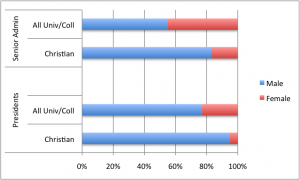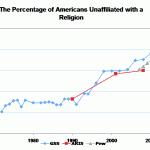Last week, my daughter brought home a class worksheet where she had noted that Barack Obama was colorblind. “What does that mean?” I asked her, only to be informed that it meant he thought people were equal, regardless of the color of their skin. I told her that’s not exactly what being colorblind meant: that seeing people as equal does not mean ignoring race. The topic then shifted to soccer and birthday parties.
Yesterday morning we had another interesting exchange before school, continuing on with this idea of people being treated equally, regardless of gender or race. She was making a statement regarding the past when people were not treated equally.
“People are still not treated equally. Many people still treat boys better than girls, and white people better than black people.” I decided to limit some of the specifics, such as differential conviction rates, job call-backs, media portrayals, or pay inequality.
“But in North America, we treat one another equally?”
I shook my head no.
“In Illinois?” No.
“In Wheaton?” No.
“On our street?” Sad laugh.
I suspect this moment was similar to those that many sociologists (and others) have had with their children, where they feel a responsibility to discuss things as they really are, despite a sort of innocence that seems to be destroyed. But we have to admit and teach our children that in the United States, people are not treated equally. Not simply in spite of the fact that such a reality is awful, but precisely because it is awful. Pretending that we are viewing and treating each other equally only makes the situation worse.
As a Christian, I yearn to see the Church standing out for our opposition to the sexism and racism in our society. However, given the fact I study issues of gender and religion, I’m almost reminded daily that my hopes don’t match reality.
Let me just note two recent statistics on gendered realities in the Christian community, recognizing that it’s not a monolithic community.
- Within colleges that are members of the CCCU (Christian Coalition of Colleges and Universities), 6 out of 111 college presidents are female. The data for this chart comes from recent efforts & research of the CCCU examining these gender discrepancies.
- A blog post yesterday on Patheos listed the top 50 influential pastors on twitter. While I won’t argue it should be the key measure of who holds influence in the Christian community, it’s still an interesting list. (Impossible) Challenge: Find one female on the list. (The author, Adrian Warnock, followed up the list with the top 20 female Christian bloggers, but none of these were senior pastors).
If we aren’t honest with our children, we do more harm than good. When my daughter (or someone’s son) sees the chart above, or hears her friends talking about those influential blogging pastors, it communicates something. She sees that those with the most power, those leading and making decisions, and those heralded for their wisdom are predominantly male and white. If she and other children believe in a meritocracy, such information suggests that men must be smarter or better at these things that women, or that white people are more competent and qualified than non-whites. That’s not true.
Some days it’s hard to move from one disappointing fact to another. This morning, I followed the discussion with my daughter to one where we talked about abuse in families during my morning class, and the failure of churches to engage in structural justice efforts in my afternoon class. Students probably left both of those feeling a bit deflated, much like my daughter appeared as she ate her cheerios. I agree with Margarita Mooney’s blog post noting that sociologists can often concentrate on the negative, and that “describing social problems is not the equivalent of describing the conditions that promote human flourishing or foster the common good.” Clearly, most of my day was not engaged in such a project.
But to move towards change, we have to be aware of what’s wrong. And it’s never too early to help kids to see it. I believe that many in the world, and within the evangelical community, can often undervalue women for the ways that they might be involved in God’s radical mission for the world. But this is not the end of the story. As my daughter looked at me sadly when I explained the prevalence of inequality today, I did engage in some positive perspective. I reminded her that God doesn’t view us that way. Thanks to a class I took as an undergraduate with Dr. Robert Kiely on early Christian literature, I was also able to tell her that some of the earliest Christians drew the attention of others as they broke gendered norms in worship, following messages of gender equality that Christ preached. As I saw her eyes twinkle, I smiled. I witnessed her hope for a broken world, a hope much more valuable than a childish innocence of sin.













